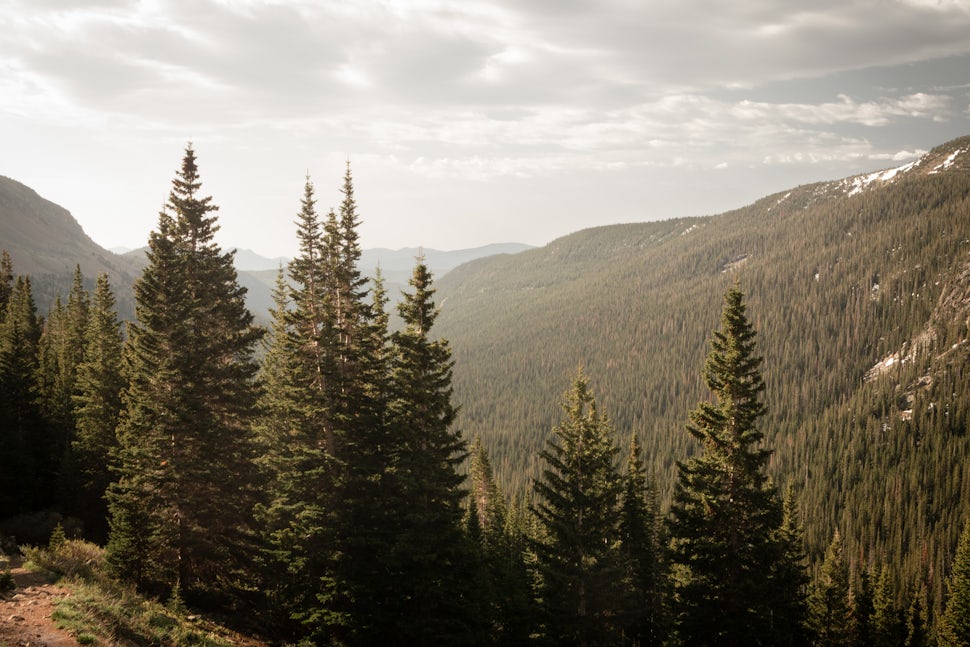Camp for Free: A Quick Guide to Dispersed Camping in Colorado
At up to $45 a night in Colorado's most popular areas, camping can feel more like a luxury than a chance to get outdoors for a weekend escape. Luckily, some of the best camping in Colorado costs absolutely nothing.

Reserving a campsite in advance has its pros: a guaranteed spot, close proximity to trails and outdoor features, and amenities like showers and bathrooms. But in some popular Colorado areas, these prime campsites can set you back upwards of $45 a night; a pretty costly way to spend a weekend, especially in campgrounds that provide very little privacy in between sites.
Dispersed camping provides an easy way to camp for free in Colorado's gorgeous National Forests and Bureau of Land Management areas — as long as you know the locations and limitations.
Why Dispersed Camping is Awesome
- It's free. For the cost of gas and food for a few days, you can enjoy the same scenic Colorado areas as those paying for a reserved campsite.
- Stay for up to two weeks. You can camp for 14 consecutive days in most dispersed campsites. Afterward, you can simply pack out and move your camp to another dispersed campsite at least three miles away for another 14 days. Note: you are only permitted to camp for 28 days out of every 60 days in any national forest or grassland. Source: US Forest Service.
- There's space between campsites. Unlike reservable campgrounds, dispersed campsites typically offer more room and privacy. However, it's up to you to find a space that's more secluded, since some areas allow camping anywhere (even in spaces without a fire ring).
- You can pitch a tent or park an off-grid RV. Whether you're a cowboy camper or an unapologetic RV glamper, there's a dispersed campsite for every type of outdoor enthusiast. Be wary of signage denoting sensitive restoration areas or campsites that restrict motor vehicles. Note that there are no electrical or water hookups for RVs.
What to Know Before You Go
- There are no amenities. If you need a daily shower or a pit toilet, you will either need to look elsewhere for camping or bring your own solar shower and camp toilet setup. These areas do not usually offer the amenities typical of a reservable campground.
- Pack in and pack out. Dispersed camping offers an authentic off-grid experience, and that means you must absolutely pack out everything, including your trash and human waste if using a portable toilet. In all outdoor recreation, your best practice is to follow LNT ethics and leave everything as you found it.
- You can't make reservations. Summer Fridays in National Forest areas can look a bit like Mad Max: Fury Road. Everyone is trying to find a dispersed camping spot and by nightfall, it's slim pickins. If you do not have the flexibility to take your chances on competing for a dispersed camping spot on a busy night, try to come up a day or two earlier for better availability.
- Always check local restrictions. It's best to be aware of fire bans, road closures, and camping limitations before you take your trip, so find out any relevant information by contacting local authorities or researching the dispersed camping area online.
- Cell service is minimal at best. You'll be camping in areas with little to no cell service, so download your offline maps before packing up the car.
How to Find Free Camping in Colorado
Locating a dispersed campsite in Colorado can be intimidating without the ease of plugging a campground address into a GPS. The easiest way to find dispersed camping in Colorado is to use The Outbound Collective's search feature. You can filter by activity and features such as waterfalls and wildlife watching.
Another way to find free camping in Colorado is through this interactive map from the Forest Service. Locate the region in which you want to camp and click for insights on campsite usage, area restrictions, and directions to designated dispersed camping sites.
Once you arrive in the dispersed camping area of your choice, you can choose your campsite by finding an empty area with a fire ring. These areas are dedicated campsites and help ensure minimal impact on the surrounding forests or grasslands.
Dispersed Camping Checklist
If you're ready for a low-cost getaway and a chance to connect with Colorado's most beautiful outdoor recreation areas, review the recommended dispersed camping checklist below before you head out into the Colorado wilderness.
- Review the Leave No Trace ethics and local regulations.
- Tent, rain fly, and tarp.
- Sleeping bag, sleeping pad.
- Camp stove (if you're planning on using a fire to cook, check the local fire regulations).
- Cooking supplies and food.
- Water or water purifier, if staying near a water source that allows drinking.
- Camp chairs.
- Rain gear.
- Extra warm clothes. High altitudes get cold at night.
- Trash bags (remember, you're packing out every last bit of trash).
- Trowel and toilet paper for responsible pooping, or a portable camp latrine.
- Hiking essentials.
- Paper or offline maps. Most dispersed camping areas have little to no cell phone service.
We want to acknowledge and thank the past, present, and future generations of all Native Nations and Indigenous Peoples whose ancestral lands we travel, explore, and play on. Always practice Leave No Trace ethics on your adventures and follow local regulations. Please explore responsibly!
Do you love the outdoors?
Yep, us too. That's why we send you the best local adventures, stories, and expert advice, right to your inbox.







